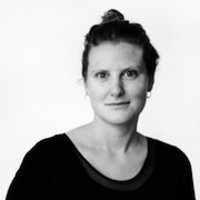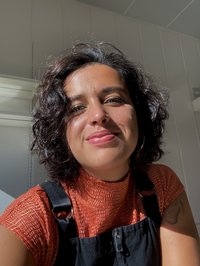In recent years, a growing number of students globally have criticised their universities for re-producing problematic and discriminating hierarchies of knowledge and people. In different ways, they have mobilised to make higher education a more socially just space for all students. This has creatively opened up spaces questioning the quality of public higher education and exploring questions of equality, decolonisation and marginalised ways of knowing.
Based on comparative ethnographic studies at public universities in the USA, the UK, South Africa and Denmark, this research project aims to investigate the role and meaning of students’ claims and actions for a more socially just university across different national and institutional contexts.
By gaining empirical insight into selected spaces of political and academic contestation in different countries, the overall project aims to contribute to ongoing debate around balancing values of equality with unfettered speech, and the ways in which different criteria for knowledge production could and should be promoted in higher education.
The project is financed by DFF, the Independent Research Fund Denmark and lasts from 1/2 2020 until 14/5 2024.
The overall project consists of four different sub-projects, focusing on the USA, the UK, South Africa and Denmark. Read more below.

As a PhD fellow, Lærke will undertake fieldwork in the United States of America, at University of California, Berkeley. UC Berkeley is included into this project because it (1) is self-positioning as an alternative to more established universities, (2) it has a long history with student activism around issues of free speech and (3) there is ongoing student activism that aims to challenge national and local debates on justice-oriented issues.
Student activists in the US are calling for so-called “de-naming” of campus buildings to avoid racist and colonial connotations, decolonizing of curricula, no-platforming and demonstrations to prevent what they deem to be “hate-speech” while simultaneously holding university administrations accountable for diversity and inclusion policies to protect minority students. In this PhD project, Lærke aims to investigate the contentions and negotiations between students and staff over demands to decolonize education and create “safer spaces”, through studying the practice of student demands through relevant courses, de-naming and no-platforming protests and other measures. Through ethnographic fieldwork, she will explore the ongoing debates and engage in creating a reflective space for the involved interlocutors.

Set against the UK’s specific historical backdrop of coloniality and racial justice movements, this project aims to explore, unfurl and archive the experiences of racialised and queer students in London, and the ways in which anti-racist organising formations carve out spaces of resistance within and beyond the university.
Having carried out collaborative zine workshops with students as well as various collectives in London, Maya is interested in exploring DIY publishing, and collective forms of archiving and knowledge production, asking how academia can be reimagined through mess, desire and disobedience.
Maya graduated from the University of Copenhagen with a master’s degree in Advanced Migration Studies. They also hold a BA in Journalism, Media and Cultural Studies from Cardiff University and The University of Amsterdam.

Gritt is associate professor in educational anthropology and globalisation at DPU, Aarhus University.
Her research interests revolve around the ways in which policies and practices of participation and democracy are changing with ongoing reforms of the (welfare)state and its educational institutions. Among other, she has done research on students’ shifting forms of political and pedagogical participation and how ideas about good and relevant knowledge are reshaped through globalising and localising processes. She takes particular interest in how alternative understandings and responses to dominant knowledge regimes are developed and circulated, for example in activist groups of students and staff, and why and how certain ideas and practices are ‘scaled up’, universalised and gain impetus in wider settings.
In this project, Gritt focuses on the ongoing discussions in Denmark around how to balance quests for inclusion and social justice in Danish higher education with values of free speech and academic freedom. She collaborates with colleagues in South Africa, the UK and the USA and, together with project participants, explores interconnections, similarities and differences between struggles and activities at the selected sites. In doing so, she will develop insights into cross-cutting methodological and theoretical themes and concepts with the aim of contributing to the development of higher education as a common good in the interest of a more cohesive and egalitarian society.